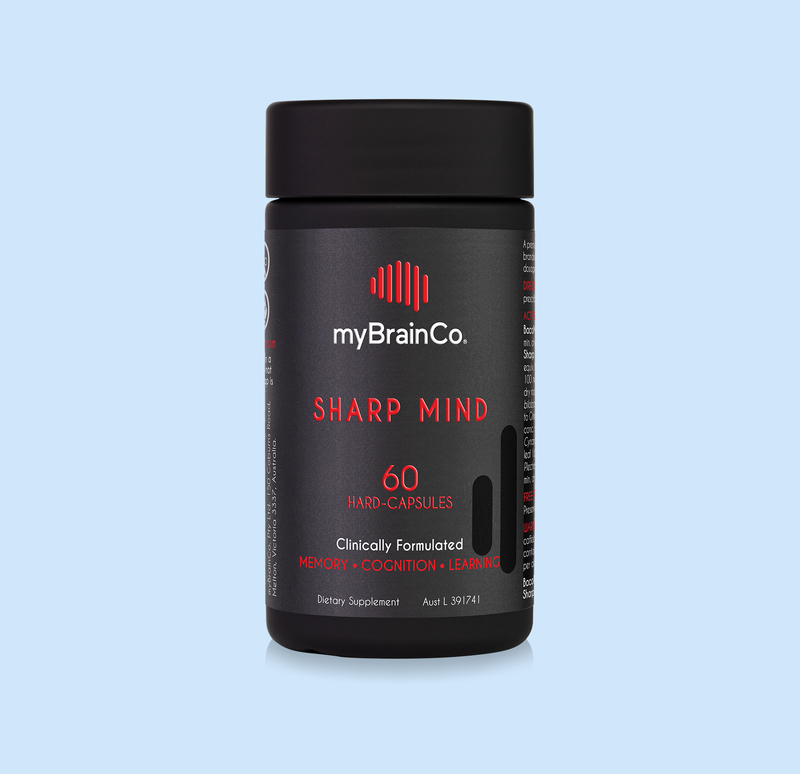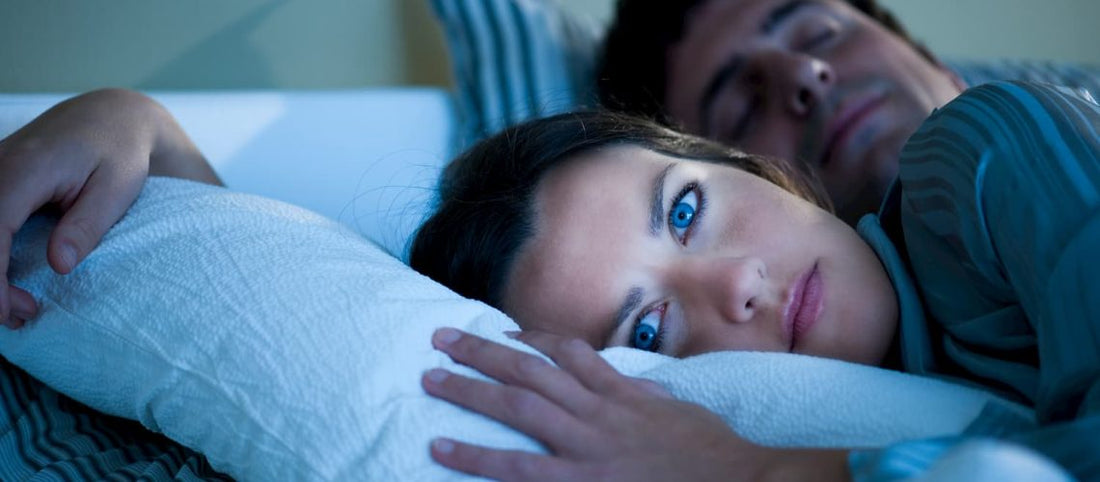Why do we sleep?
Sound sleep is the bedrock of cognitive function and yet, so many of us fail to achieve a good night of regenerative sleep. Sleep restores energy, promotes regeneration, strengthens the immune system, relieves stress, assists memory and enables learning, which is why we typically spend around one third of our lives sleeping.
During sleep, the body is working to repair and rejuvenate itself. One such rejuvenation process is the recently discovered glymphatic system, a predominantly sleep-activated macroscopic waste elimination system within the brain. The glymphatic system has two primary functions, the first is to clear potentially neurotoxic waste compounds, the other is to distribute beneficial compounds such as lipids, amino acids, glucose and neurotransmitters. This vital activity highlights the importance of prioritising a good night sleep.
Definition of Insomnia
Insomnia is a sleep disorder that disrupts our sleeping pattern. The circadian rhythm is the body’s biological sleep-wake cycle and operates on a 24-hour clock (approximately.) During the sleep-cycle, the hormone melatonin is produced turning the wake cycle off. Disruption of the circadian rhythm can result in insomnia, either by struggling to fall asleep, struggling to remain asleep or waking unrefreshed.
Insomnia has been linked to a spectrum of health issues including fatigue, poor concentration, mood swings, high blood pressure, heart disease and diabetes. While good sleep differs for everyone (early birds, night owls, power nappers, siesta lovers) not getting consistent restorative sleep also makes everyday tasks difficult, such as keeping a schedule, comprehending new information and maintaining productive interpersonal relationships.
Different Types of Insomnia
Insomnia is the most common of all the sleep disorders, with millions of people suffering from it at least once in their lives. The Sleep Health Foundation cite around 1 in 3 experience mild insomnia, with women twice as likely to suffer as men. People are also sleeping less than they used to with Americans sleeping an average of 6.8 hours per day, down more than an hour from 1942.
Most types of insomnia are categorised by the duration of time the condition is experienced, or which stage of the sleep cycle it impacts.
- Acute insomnia (short-term) – possibly due to bereavement, work/exam stress, a break-up, event anticipation or illness
- Chronic insomnia (long-term, months or years) – persistent struggle either falling asleep or staying asleep at least three nights per week, may be associated with behavioural factors, chronic stress, or prolonged illness
- Onset insomnia – difficulty falling asleep
- Maintenance insomnia – difficulty remaining asleep
- Co-morbid insomnia – combined with another health condition, either physical or mental
Causes of Insomnia
Causes of insomnia present differently for the individual and are not always obvious; they could be a combination of physical, psychological or behavioural elements. Insomnia may also be the cause or the effect of a condition, for example, the cause of insomnia may be anxiety or anxiety may cause insomnia. Similarly, sleep apnoea (another sleep disorder) indicates difficulty breathing while asleep but may result in insomnia.
Physical causes can include:
- Nasal or sinus conditions
- Gastrointestinal problems, reflux
- Chronic pain, back pain
- Restless leg syndrome
- Arthritis
- Asthma, breathing problems
- Cardiovascular disease
- Pregnancy
- Menopause
- Hyperthyroidism (overactive thyroid)
Psychological causes can include:
- Anxiety
- Depression
- Bipolar disorder (manic phase)
- Chronic stress
- Excessive worrying
Behavioural causes can include:
- Financial burdens
- Blue screen from electronic devices
- Rotating work roster, night shifts
- Crossing several time zones
- Obesity, sedentary lifestyle
- Substance use
Symptoms of Insomnia
Symptoms of insomnia are indicated by the behaviours we exhibit and some of the most common ones are: difficulty falling asleep (Onset insomnia), difficulty staying asleep or periodically waking then having trouble returning to sleep (Maintenance insomnia) or feeling unrested upon awakening (Non-restorative sleep.) Most obvious are the feelings produced by these behaviours such as: fatigue, lethargy, drowsiness, sluggishness and the general disposition of feeling tired, resulting in poor concentration, forgetfulness, apathy, irritability, impulsiveness or being short-tempered.
Are There Cures for Insomnia?
For sufferers of short-term insomnia, a combination of therapeutic strategies can be implemented. Be mindful that it will take time to balance the sleep-wake cycle, so prepare for a trial and error period, until the right combination presents itself.
- Avoid coffee, tea, sugar, meals and exercise before bed. These are all stimulants. Try natural sleep aids like warm milk, herbal tea or supplements such as magnesium, Kava, Zizyphus or California Poppy.
- Create a conducive sleep space. TVs and phones keep minds engaged. Blue screen light emitted from devices has been shown to suppress levels of melatonin, disrupting the sleep-wake cycle. Remove these from your sleep space to avoid any distractions.
- Establish a bedtime routine. Go to bed and wake up at the same time, including weekends. Consistency promotes good sleep, make sleep a health priority.
- Quit smoking and limit alcohol consumption. Nicotine and alcohol significantly disrupt sleep patterns.
- Incorporate relaxing rituals. Reading a book (not an eBook!), meditate, deep breathing, play peaceful music or ambient sounds.
- Introduce aromatherapy such as lavender, sandalwood, neroli, cedarwood.
- Evaluate your medications to determine if they are disrupting your sleep patterns.
- Consider a sleep log to record when you fall asleep, wake up, instances of disruption.
- Stay active during the day. Sunlight exposure in the morning can help restore circadian rhythms, so taking a morning walk can be a great habit to initiate.
Whether chronic or acute, insomnia can leave you feeling sluggish, impacting your cognitive performance, productivity and interpersonal relationships. Prioritising sleep is an important healing practice that can add years to our lives, support our metabolic and mental wellbeing and look after our mind and memory.



